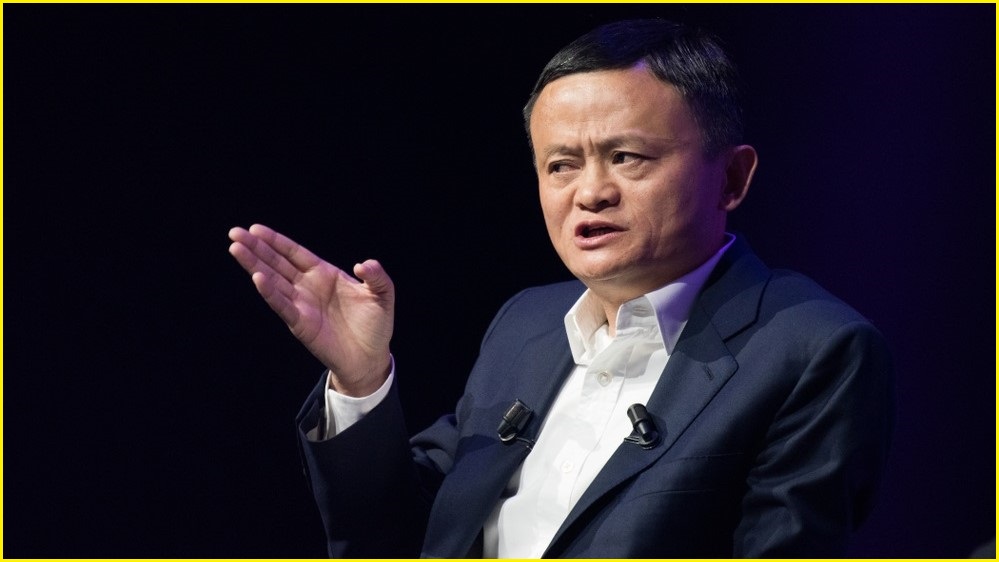Financial markets have responded enthusiastically to news that Jack Ma, the Chinese billionaire whose founding of tech brands including Alibaba and Alipay made him one of the world’s richest people, will step away after years of chaos.
Shares of companies invested in by Ant Group – an Alibaba-affiliated company whose 1.3 billion-user Alipay service has become one of the world’s largest financial services providers – were up after the weekend announcement that Ma will cede control of the company.
Ma’s decision to step down comes three-and-a-half years after the tech luminary announced his transition plan in an open letter to staff that laid out a 12-month timeline for his handover to successor Daniel Zhang.
That transition was supposed to dovetail with the initial public offering (IPO) of Ant Group, which was scheduled for November 2020 and was expected to raise $53 billion ($US34.5 billion) through dual floats on the Shanghai and Hong Kong markets.
Ma, whose long-running success with Alibaba had been built on risky innovation such as microlending – propped up by the sheer size of the Chinese market – had been overly dismissive of regulators’ inquiries into Ant Group’s financial risk management practices, including concerns that the company was hiding risky loans and that its size could compound any underlying instabilities.
Just weeks before the IPO, however, Ma spoke at Shanghai’s Bund Summit to accuse China’s banks of being obsessed with minimising risk and behaving like “pawn shops” because they would only finance those with collateral to offer.
It was consistent with his long-held aversion to regulatory strictures – which he had, for example, railed against in his 2018 resignation announcement by warning that “simply relying on individuals or blindly following a system will not solve our problems”.
“To achieve long-term sustainable growth,” he wrote, “you need the right balance between systems and individuals.”
Ma’s push for innovation over regulation didn’t sit well with Chinese authorities, who summoned him for a meeting on the eve of the IPO and subsequently cancelled the float amidst reports that Chinese Premier Xi Jinping had personally intervened to halt the IPO.
Regulators simultaneously issued new draft guidelines outlining regulatory measures for online microlending that were seen as being targeted directly at Ant Group.
It was, along with a subsequent $4.3 billion ($US2.75 billion) fine punishing Alibaba for alleged unfair practices – the largest penalty ever imposed by the Chinese government – a reminder from Xi’s government that Big Tech’s power is not inviolable, and that once unfettered tech billionaires should be incentivised to support “common prosperity”.
Markets welcome change and certainty
The decision for Ma to cut ties with Ant Group, which was announced over the weekend, puts the company back on a trajectory towards an IPO later this year – earning it the blessing of financial markets that have watched a recent resurgence in Chinese shares with anticipation.
One aggregate tracker of key Chinese shares, the KraneShares CSI China Internet ETF KWEB, has doubled since October, with Alibaba flagged this month as a top priority by investment giant Morgan Stanley.
That’s a big swing by a firm that, only last March, advised investors to stay patient despite “rapid deterioration in our bear case scenario” as Chinese markets were hit by factors such as the Omicron strain of COVID-19 and the geopolitical risk from Russia’s invasion of Ukraine.
Nearly a year later, optimistic revenue forecasts from Chinese giants like Alibaba has made them the darlings of the investment community – and Ma’s departure frees Ant Group from the kind of uncertainty that drove the Chinese government to cancel the company’s 2020 IPO.
Coincidentally, Ant Group has also been greenlit by government regulators to nearly double the registered capital of its consumer finance unit, adding $2.3 billion ($US1.5 billion) in a move that will eliminate one more regulatory obstacle holding back the IPO.
Ant Group’s changing fortunes highlight the challenges facing tech billionaires who believe their success makes them untouchable, coming on the heels of the announcement by Elon Musk that he will resign as CEO of Twitter after more than 10 million users voted him out.
In a result similar to the bounce after Ma’s announcement, shares in electric-car giant Tesla surged after Musk’s resignation was announced – underscoring the market’s perception that the removal of unpredictable leaders is critical to enabling otherwise strong businesses to consolidate their success.
Ma – who previously controlled 53.46 per cent of Ant Group’s shares and was called the company’s “control person” – has kept a low profile since the IPO was cancelled, and will see his shareholding diluted to just 6.2 per cent after a restructuring that company officials said would “further enhance the stability of our corporate structure and sustainability of our long-term development.”
Yet in an increasingly confrontational global tech market – in which the Chinese government banned foreign technology providers and the United States invested billions to accelerate onshore investment in semiconductor markets that China has long dominated – just how that long-term development pans out, and to what degree Ant Group helps to drive it, remains to be seen.
And what does the future hold for Ma, a former English teacher whose net worth dropped last year but is still estimated at $40 billion ($US25.8 billion)?
If his original screed is any indication, Ma may be returning to his roots in education, “which excites me with so much blessing because this is what I love to do.”
“The world is big, and I am still young, so I want to try new things,” he wrote, “because what if new dreams can be realised?”










